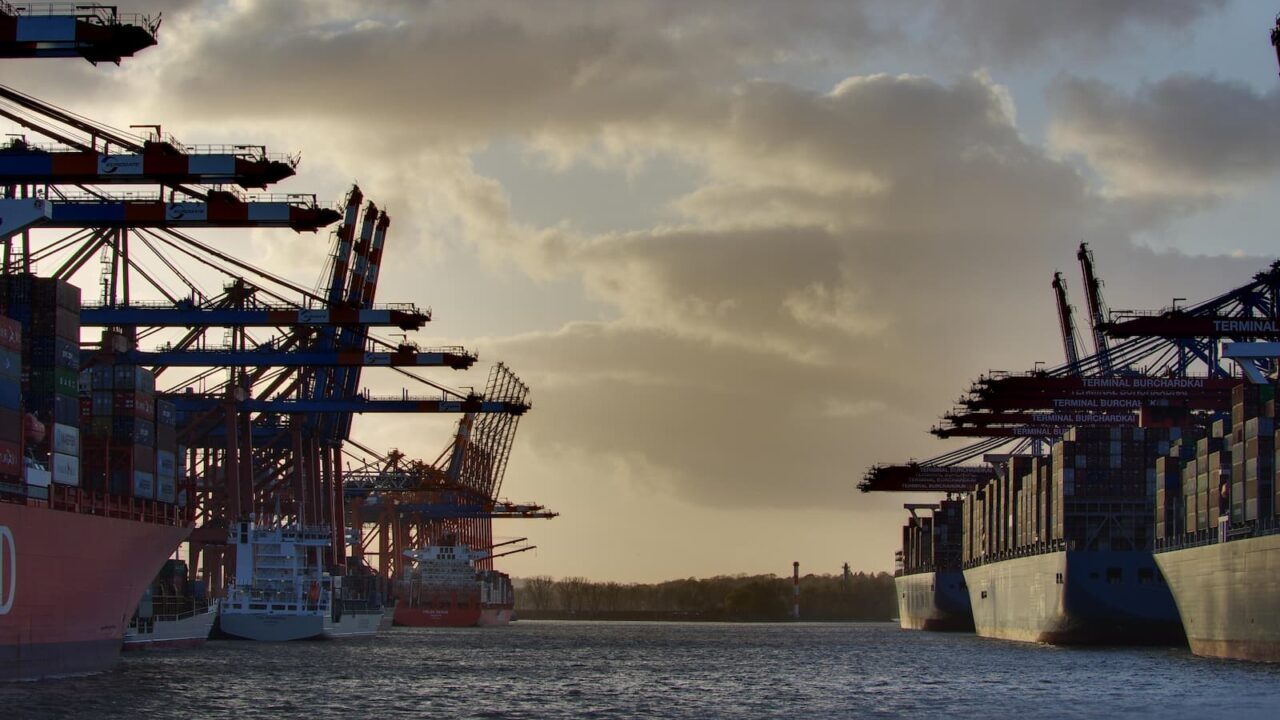Four ways the new German government can strengthen European trade against economic coercion
Threats to Germany’s and Europe’s economic sovereignty have won too little attention in the German election campaign. But, soon, policymakers in Berlin will have to take decisive steps to build up Europe’s strength against economic coercion
Germany needs a new approach to protecting its economic model – or else it risks losing jobs, profits, and its leadership position in many economic sectors. A geo-economic shift is taking place, bringing about an enduring change to trade and international relations. Around the world, powerful countries no longer always reach for military means to secure geopolitical advantages, but instead deploy other methods, predominantly economic tools. This development comes with many difficulties for Europeans, particularly for exporter countries such as Germany that are especially dependent on international trade being a well-functioning system – making it highly vulnerable to coercion.
Threats to businesses in recent years have sent a warning signal to Berlin. Donald Trump’s administration and Beijing both threatened to take punitive action against German car exporters to try to influence policy decisions in Berlin. The Chinese ambassador in Berlin was not shy about saying that, if Germany had excluded Huawei from the building out of its 5G network, German carmakers would have suffered.
Despite Joe Biden’s election, the threat of economic coercion remains – potentially again from the United States in future, but mainly because America cannot be expected to simply defend Europe if a third country such as China uses economic coercion against it. The American departure from Afghanistan and even the new AUKUS “alliance” are pointed reminders that Europeans will need to look after themselves and be a more capable and ‘useful’ ally to the US.
For the German economic model, the risks are not about any one country and not even just about tensions with China. A wide array of countries now willingly and actively tie together geopolitics and trade and economics. This is the nature of globalisation today. A particular problem for Berlin is that third countries are increasingly taking action not against Germany directly, but against German companies, because changing their behaviour promises to change German or European policies. China has put in place a whole range of “squeezing laws” that threaten punishment to companies that comply with Western policies and sanctions, or that export products to places China does not want to see them go.
What, then, can Germany do, as the EU’s largest economy and most politically important member state? And are its aspiring new leaders accounting for this profound shift in how the world works?
Build up Europe’s economic strength
Europe’s most important defence against economic coercion is to build up its own economic strength. This can make it harder for third countries to leverage asymmetries to pressure Europeans. To ensure Europe achieves this, Germans should push for the completion of the single market, a strengthening of the euro, and a potential rethink of their current opposition to certain aspects of a banking union. A stronger Europe will make both Germany and Europe more resilient in the face of economic coercion and help them avoid having to bow to external pressure. This should be a focus for the next German government – but the issue has won next to no attention from party leaders in the current election campaign.
To take one example, they should take a closer look at industrial policy, at both German and EU level. Whoever makes it into government should in future avoid simply backing sectors that are politically most sensitive or whose lobbying is most effective. Instead, Germany’s and Europe’s future leaders should ensure the public sector intervenes strategically when necessary – principally to develop critical infrastructure such as in digital, to provide targeted support for research and development and innovation ecosystems, and to shape promising markets rather than just fix them on an ad hoc basis. Governments across the continent could identify sectors where Europeans already lead, to help them solidify this advantage, or where they could become a global leader if the right policies were introduced for their particular sector. Berlin should lead the way on this.
Introduce an anti-coercion instrument
Strengthening the economy is necessary but is not an overnight process, and so it does not give German and European leaders a policy option in a concrete situation where a third country blackmails them via economic means. To be able to see off a grave economic threat, Germany and the European Union will need to create more ways to defend themselves – and to deter coercion in the first place. In choosing their next steps, it is important for Germans to rethink how they view their trade relations. They should do this by drawing on some of their own history and core governing principles. The principle of Wehrhafte Demokratie – well-fortified democracy – is a core part of German thinking about the country’s internal liberal democratic order. This is the lesson from its descent into fascism, totalitarianism, and genocide. It means that liberalism and its rules have to be protected, if necessary with power, politics, and limited illiberal means. Simply sticking to the rules can be a dangerous choice if others are determined to harm the liberal democratic order.
German policymakers should now apply the idea of Wehrhafte Demokratie to their foreign policy, and to international liberalism.
There are obvious limits to the parallel, but German policymakers should now apply the idea of Wehrhafte Demokratie to their foreign policy too, and to international liberalism.
The European Commission’s forthcoming “anti-coercion instrument” is an important example of applying this principle in practice. The instrument would allow Europeans, when a qualified majority of member states agrees, to take reciprocal economic countermeasures against a third country if it were to attempt to gravely punish Europeans for having taken a particular policy stance. Such a last-resort tool could involve European tariffs, restrictions on investing in the EU market, or data or services restrictions as countermeasures against grave forms of economic sanctions or coercive measures. An anti-coercion instrument could give the European Commission the power to respond to economic coercion swiftly. And the mere possibility of limited illiberal countermeasures would bolster the liberal international trading system, just as it bolsters Germany’s liberal democratic order.
The geostrategic case should be clear for Berlin: a more geopolitical, more capable, EU will also make Germany more resilient. From a trade policy perspective, the case might be less clear, as establishing an anti-coercion instrument comes with significant risks. But on balance it is possible for the EU to build such an instrument if it included strong mechanisms for de-escalating, rather than escalating, in a conflict situation. German leaders should work to ensure the EU adopts this in the near future.
Set up an EU Resilience Office
It is not unusual for countries’ sanctions decisions to be lacking in clarity when they are issued. But Chinese actions are often particularly vague, and they are also often deployed without any accompanying guidance or legislative basis. For example, when China listed entities such as the EU’s Political and Security Committee, it was unclear who exactly had been banned.
To help deal with this and other related problems, the EU could establish a Resilience Office that would provide more clarity to companies and governments. It could comprise experts from different fields and systematically assess instances of coercion against Europeans, and identify subtle and informal forms of coercion, as well as their cost to European businesses. In cases of uncertainty, the office could issue guidelines on what Chinese measures mean and how the EU views them. It could also serve as a key European interlocutor with Chinese State Export Control Administrative Departments and other Chinese agencies responsible for potentially coercive tools. Again, it will be in the clear interest of German trade and European sovereignty to make sure the EU establishes this new office.
Block European compliance with Chinese measures
The risk is currently high that European companies will soon find themselves in situations where they have no choice but to comply with Chinese regulations that harm them, Europe’s trade, or European policy. For instance, new Chinese export controls could prevent re-export to third countries if a European company had imported goods from China. Beijing may deploy these, for example, as a way of significantly interfering with European trade in sensitive goods. But the only tool the EU has to deal with such situations is a blocking statute, which is effectively dysfunctional; it prohibits companies from complying with certain identified measures (and thereby puts firms between a rock and a hard place, facing punishment in both a third country and the EU).
The EU could adopt a more strategic approach to the instrument and prepare it for possible use on Chinese measures. It could do so by: making the instrument more about protecting companies than punishing them; inserting an obligation into the instrument to provide information to regulators, which could enable the EU more easily to take countermeasures against the coercive actor; and providing compensation to European companies in select cases.
***
There are many difficulties and challenges that come with some of these policy options, for both German and EU-level decision-makers. The EU is facing a dilemma as a union of trading nations: it needs to uphold the rules of free trade as much as possible, but it also needs to prepare to resist stronger and more frequent economic coercion. It cannot just give in to such coercion by changing its policies. In the case of China’s recent sanctions, this would have meant backing down on speaking out on human rights.
As part of its renewal of German (economic) policies, the new government in Berlin will need to take decisive steps to build Europe’s resilience. If the EU is not strong and resilient, Europe will find itself weak and isolated in an increasingly dangerous world – and Germany’s prosperity, which political leaders say they want to preserve, will shrink and no longer deliver for German citizens.
The European Council on Foreign Relations does not take collective positions. ECFR publications only represent the views of their individual authors.



